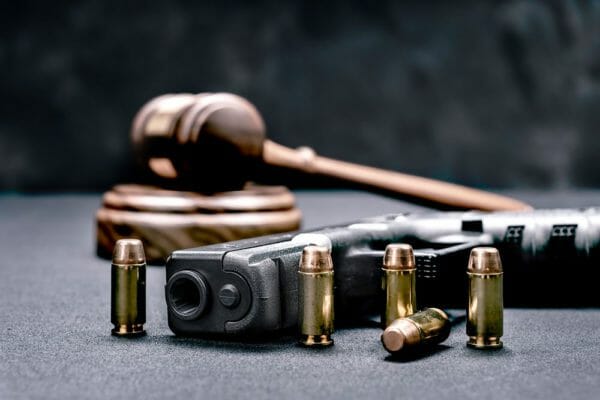

The United States Court of Appeals for The District of Columbia Circuit disregarded the text, history, and tradition of the Second Amendment and ruled that DC’s magazine ban is Constitutional.
The case, Hanson v. District of Columbia, challenged the city’s ban on magazines holding more than ten rounds. The plaintiffs wanted to own 17-round magazines, the standard size for Glock 17s and other full-size handguns. The Circuit Court referred to these magazines as extra-large capacity magazines (ELCM).
A District Court upheld the law earlier, leading the plaintiffs to appeal to a three-judge panel at the DC Circuit Court. They argued that the District Court got it wrong because the law was unconstitutional under the Bruen and Heller standards. DC claimed that the law was within the scope of the Second Amendment and consistent with both these cases.
The Supreme Court’s Heller opinion said that a bearable arm in common use for lawful purposes cannot be banned. DC argued that magazines holding more than ten rounds are rarely used in self-defense and, therefore, are not commonly used for self-defense. The plaintiffs countered that just because most self-defense situations require less than ten shots doesn’t mean those guns were not equipped with magazines holding more than ten rounds. The judges agreed with the plaintiffs.
The Supreme Court’s Bruen opinion said that a gun law must be consistent with the original text of the Second Amendment and the nation’s history and tradition of firearms regulations from the founding era. Since the court found that magazines holding more than ten rounds were bearable arms protected by the Second Amendment, the case moved to the second step of the Bruen test.
The government must provide historical analogues from the founding era that show the current law is consistent with the tradition and history of the Second Amendment. Most legal scholars and courts believe that the founding era was the ratification date of the Second Amendment in 1791. DC tried to use gunpowder storage laws to satisfy the court. The judges pointed out that according to the Supreme Court’s Rahimi opinion, a law doesn’t have to be a historical twin but does have to be similar, and gunpowder laws were about preventing fires, not disarming the people.
The District would also offer up two other examples of laws. One was a ban on Bowie knives from the late 1800s and a twenty-century magazine capacity ban for Thompson Sub Machineguns. Two judges bought into those arguments, with the third writing a blistering dissent rejecting DC’s argument.
“The majority’s contrary conclusion depends on two types of regulations,” Judge Justin Walker wrote. “But neither of them is analogous. The first of them — a ‘handful’ of laws enacted nearly a century after the Second Amendment’s ratification in two outlier states and a territory — did not cover arms kept at home or carried while traveling; in addition, those laws are too little and too late to establish a historical tradition. As for the second purported analogue, it covered only ‘unusual’ arms — not arms in common use for lawful purposes. So neither demonstrates a tradition of laws imposing a burden comparable to DC’s complete ban on commonly possessed plus-ten magazines.”
The historical analyses wouldn’t matter because the judges said that even if there are no historical analogues and, the Second Amendment did protect magazines holding more than ten rounds. DC could still ban them because they “implicate unprecedented societal concerns and dramatic technological changes.” Judge Walker, a Trump appointee, points out that this has never been a category used by the courts, and the Supreme Court has rejected the reasoning that the other judges used in the Bruen decision.
Judge Walker is talking about interest balancing, also known as intermediate scrutiny. Intermediate scrutiny weighs the states’ wants vs. the people’s rights. SCOTUS was very clear in Bruen. Courts cannot use interest balancing to uphold unconstitutional gun laws, which appears to be what two of the three judges did on the panel.
As of now, the DC law will remain in effect. The plaintiffs can ask for an en banc hearing where the whole bench would hear the argument. The panel’s decision would be vacated if an en banc hearing is granted. The plaintiffs can also go directly to SCOTUS, where the Justices might take up the case since many in the legal field view this decision as ignoring Bruen.
About John Crump
Mr. Crump is an NRA instructor and a constitutional activist. John has written about firearms, interviewed people from all walks of life, and on the Constitution. John lives in Northern Virginia with his wife and sons, follow him on X at @crumpyss, or at www.crumpy.com.

This article was originally published by AmmoLand. We only curate news from sources that align with the core values of our intended conservative audience. If you like the news you read here we encourage you to utilize the original sources for even more great news and opinions you can trust!










Comments